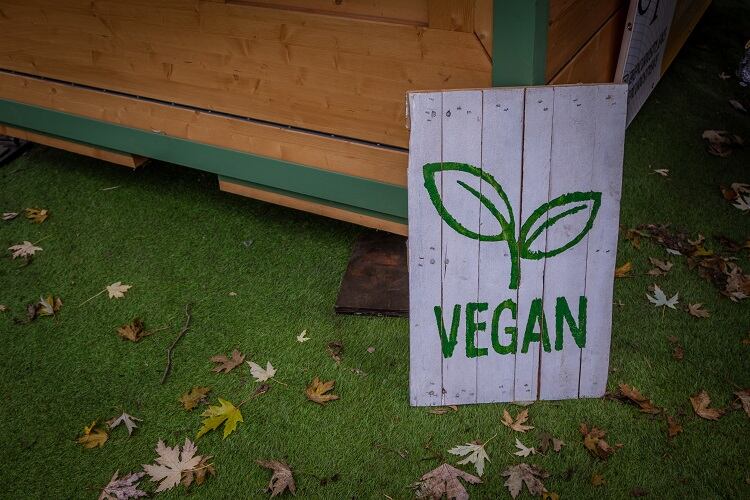Vegan food is, generally, food that does not contain animal products. Yet there is an important distinction between food labelled as such, and food with a ‘free-from’ label.
Unlike ‘free-from’, ‘vegan’ is not an allergen label but a dietary one, meaning that those who have allergies to certain ingredients, such as dairy, fish, eggs, crustaceans, and molluscs, cannot trust that food labelled ‘vegan’ does not contain traces of these ingredients from cross-contamination.
To confirm they do not, consumers must look for a ‘free-from’ label. Alternatively, if cross-contamination is likely to be present, the product may have a ‘may contain’ label informing the consumer of this potential.
Recent research by the Food Standards Authority (FSA) in the UK found that there is a lack of awareness of this. Such a lack of awareness puts those with allergies at risk.
Dietary labels and allergen labels
According to the FSA’s research, 62% of consumers who buy products labelled ‘vegan’ are confident that they will be safe to eat for those with allergies to any animal-based ingredients. This is dangerous, and has in the past led to incidents of death.
And that’s not all. According to the research, 54% of people who react negatively to products of animal origin sometimes use vegan labelling to help them ascertain whether food is safe to eat, and 29% weren’t aware that they should check this food for a precautionary label referring specifically to allergens.
Labelling responsibilities
While DEFRA is responsible for food labelling that is non-safety related, such as vegan and vegetarian labelling, the FSA is responsible for allergen labelling.
The FSA has launched a campaign to help clear up these gaps in consumer knowledge. “Through this campaign, we are raising awareness and encouraging people with allergies to milk, egg, fish or shellfish, or who buy for someone who has, to always check for a precautionary allergen statement such as ‘may contain’, on products labelled 'vegan', to decide on whether it’s safe to eat,” said Sushma Acharya, head of policy and strategy for food hypersensitivity at the FSA.
“Vegan food, like all other food, is required to highlight any allergens contained within the product on the label, but ingredients could be present unintentionally due to cross-contamination, which could happen at any point during production, and is why checking for a precautionary allergen statement is so important.”
According to the UK’s Department for Environment, Food and Rural Affairs (DEFRA), “there are currently no specific labelling rules that cover the suitability of foods for consumers following a vegan or vegetarian diet, therefore the use of terms such as ‘suitable for vegans’, like other voluntary labels, is bound by the provision that they must not be misleading.”
'Fundamental' change?
While aiming to clear up the gulf between public awareness of the difference between allergen labelling and vegan labelling, the FSA’s campaign does not appear to aim at furthering regulatory change.
“While public awareness campaigns have historically been successful in raising awareness they do not often influence changes to the regulatory framework,” said Rachel Lyne, partner at law firm Browne Jacobson.
Labelling risks for the blind and partially sighted
While misunderstanding can pose a risk to people with food allergies, some research has found more systemic issues with labelling. Research earlier this year found that many blind and partially sighted people are unhappy with labelling innovations aimed to communicate to them a food’s ingredients, including if it contains allergens. This information still very often proves inaccessible to them.
There have been a few exceptions to this, such as when the death of an individual can provide fuel to the fire of campaigning. Natasha’s Law, for example, was brought in in the UK following the death of teenager Natasha Ednan-Laperouse, who had an allergic reaction to a baguette. The law states that manufacturers must list all a product’s ingredients on the packaging.
According to Lyne, the FSA have already made small regulatory changes on the matter, which she sees as an indicator of their reluctance to make more ‘fundamental’ regulatory changes.
“The FSA has already updated its technical guidance for food businesses and industry, advising them to use a Precautionary Allergen Label (PAL) alongside a vegan label if cross-contamination cannot be ruled out,” she told FoodNavigator.
“The changes made by the FSA to its technical guidance would suggest that there is little appetite to make further and more fundamental changes so as to define the term Vegan nor to impose additional labelling requirements on the food industry.”



